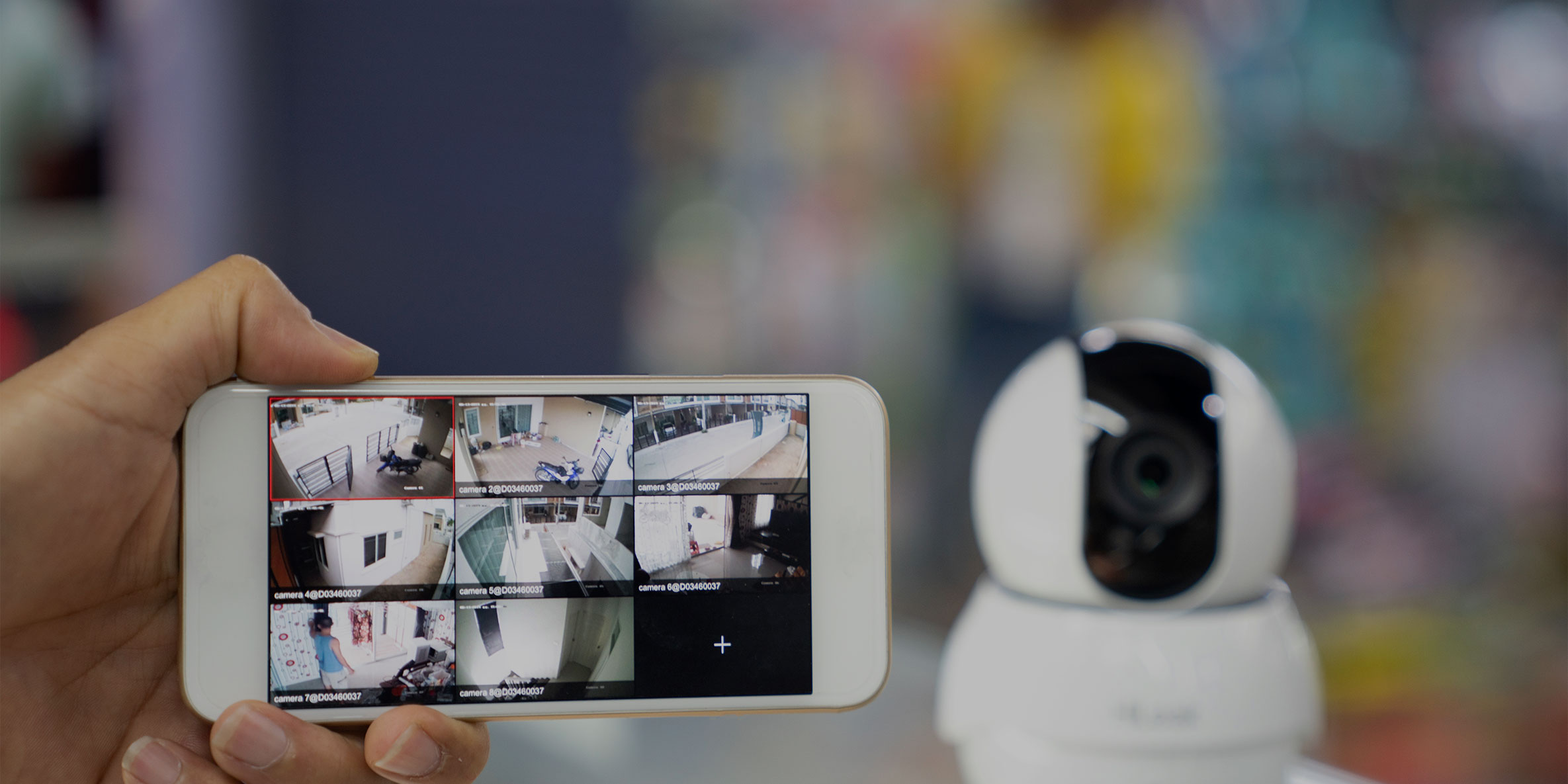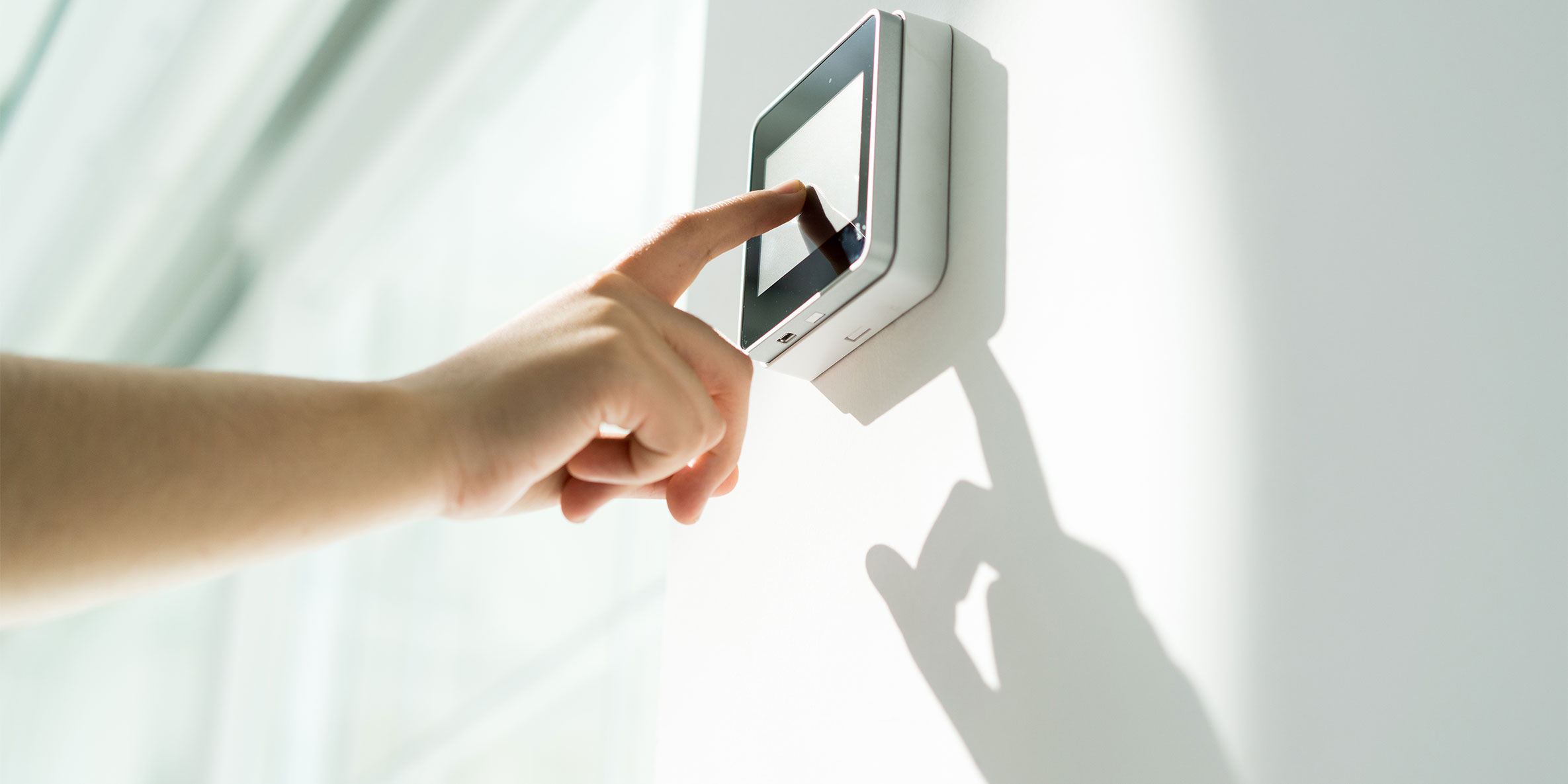This post was originally published on February 13, 2018 and has been updated for accuracy and comprehensiveness.
Home security system maintenance is vital to ensure all components are working properly. Whether it’s changing batteries or conducting an alarm system test, you should perform regular maintenance to keep your system operational and your home safe.
This post highlights several ways you can maintain your home security system, from the components you can fix yourself to appointments that may require a professional.
Check All Alarms
Have you been experiencing an annoying beep ringing throughout your home?
Chances are, one of your monitored alarms has a low battery. To remedy, go through your home with a battery tester to check your alarms. If the beeping still hasn’t stopped, try to disarm and rearm your system. If all else fails, it could be a wiring issue that requires maintenance.
Clean Your Security Cameras
Is the picture from your security camera fuzzy? Does the image appear foggy on your mobile device? It’s probably time to clean off the lens. To do this:
- Turn off the camera.
- Use a compressed air can to blow off dirt and dust on the lens.
- Take a microfiber cloth, and gently wipe the lens clean.
- Turn the camera back on.
Outdoor cameras can also become obstructed with insects and webs. Here’s how to keep them clean:
- Apply lubricants to the outside case of your camera to make them too slippery for spiders.
- Attach a dryer sheet to the camera. The strong smell will keep bugs away.
- Disable the LED lights, which attract bugs.
- Loop a flea collar around your camera.
- Spray bug repellent around cameras.
- Sweep camera areas weekly.
- Use a fan to prevent spider webs.
We also recommend checking your camera’s cables to ensure proper connections. Loose cables are usually responsible for a faulty system.
Make Sure Sensors Are In Place
Door and window sensors are an important component of keeping your home secure from intruders. Ensure that all sensors are secured and that the adhesive is still effective. Sometimes, the adhesive can lose its strength over time due to humidity, causing the sensor to slip and trigger a false alarm.
For maximum performance, avoid installing sensors:
- Under objects that move easily, like curtains.
- Near vents or fans.
- In areas where children or pets can get to them.
Schedule an Appointment
If you’ve tried troubleshooting your home security system and you’re still experiencing issues—or just want someone to take a closer look—you need to schedule a professional maintenance appointment.
Depending on the issue you’re experiencing, the technician will work with you to troubleshoot the cause of the problem. The scope of the problem will dictate how long they will be onsite and what follow-up activities will be required.
It’s wise to have a professional inspect your home security system once a year. During routine maintenance appointments, a Vector Security expert will:
- Inspect all equipment, including batteries.
- Verify all transmitting signals are reaching the monitoring center.
- Ensure all panic buttons are working properly.
- Check door and window sensor durability to ensure none are loose.
- Repair damaged parts that may be malfunctioning and putting security at risk.
A checklist like this is one of the things that sets a high-quality security vendor apart from the rest. To achieve this level of safety, talk to a Vector Security expert today.



